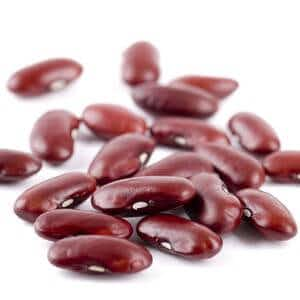
Nutrition experts are constantly encouraging all of us to eat more vegetables. People who eat the most produce are about 15 percent less likely than those who eat the least to develop heart disease and similar problems (Zhan et al, Critical Reviews in Food Science and Nutrition, May 24, 2017).
People who follow a DASH diet rich in vegetables have lower blood pressure and are less susceptible to diabetes. A DASH diet (Dietary Approaches to Stop Hypertension) includes at least four servings a day of vegetables and four of fruits. The much-touted Mediterranean diet is also loaded with veggies.
These diets are also full of beans. Legumes like beans and lentils are a healthful substitute for meats. In addition to the protein they provide, they are great sources of fiber that can help nourish the microbes in our digestive tracts.
Beans and Veggies Can Make You Fart:
Unfortunately, though, there is a drawback to a bean-heavy menu. You may have already guessed it: gas. Legumes contain lots of compounds called oligosaccharides. So do vegetables such as artichokes, broccoli, cabbage, chickpeas, garlic, leeks, okra and onions.
Humans can’t break down these complex sugars. But bacteria in the large intestines can. They love oligosaccharides and use them as food. One outcome is gas—hydrogen, carbon dioxide and in some people methane.
Can You Benefit from Beans Without Suffering from Gas?
How can you get the benefits of beans, lentils and vegetables like brussels sprouts or broccoli without having to fart? Some cultures have traditional flavorings that are purported to counteract gas. In India, asafetida (hing) is frequently added to legume dishes. Turmeric is also reputed to have digestive benefits. Mexican chefs put the herb epazote in their pots of beans.
Ginger and fennel are also popular for this purpose. Either can be added to the legume dish or made into tea for consuming between meals.
Gas-Reducing Trick for Cooking Beans:
If you are cooking beans and want to minimize their gas-producing power, here is a suggestion: Cover the beans with a generous amount of water. A ratio of nine parts water to one part beans is recommended. Bring them to a boil, cook for three minutes and allow them to cool for four hours. Pour the water off, add plenty of fresh water and cook the beans for half an hour. Then discard this water and add more to cook the beans until they are done. This final cooking water should also be discarded to get rid of the oligosaccharides raffinose and stacchyose that cause gas.
If you are not in control of the cooking process, you might want to try taking Beano at the beginning of the meal. This product contains the enzyme alpha-galactosidase. It can break the oligosaccharides down and deprive intestinal bacteria of their fuel. The consequence: you will not have to fart so much.
Medicines That Can Trigger Gas:
Food is not the only culprit for creating gas. Some medications can also contribute to flatulence. The weight loss drug orlistat (Alli, Xenical) is notorious for this complication. Some antidepressants, including paroxetine, sertraline and venlafaxine, may also cause problems. For a longer list of medications that can trigger excess gas, you may wish to consult our Guide to Digestive Disorders. It also mentions other ways to combat flatulence and bloating.
Anyone who would like a printed copy, please send $3 in check or money order with a long (no. 10) stamped self-addressed envelope:
- Graedons’ People’s Pharmacy
- No. G-3
- P. O. Box 52027
- Durham, NC 27717-2027
A pdf can also be downloaded for $2 from the website: www.peoplespharmacy.com.
You may also be interested in our interview with Dr. Gerard Mullin and Dr. Norman Robillard. It is Show 1023: How to Rebalance Your Digestive Tract Bacteria.

